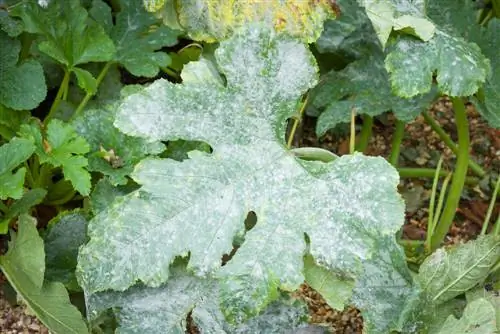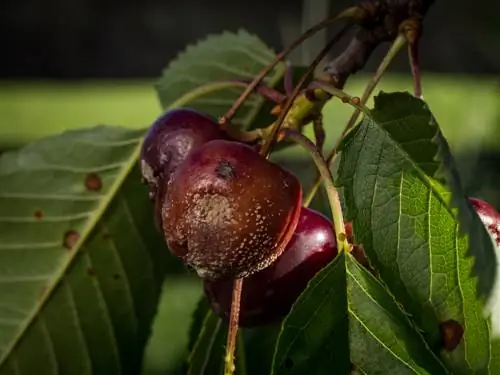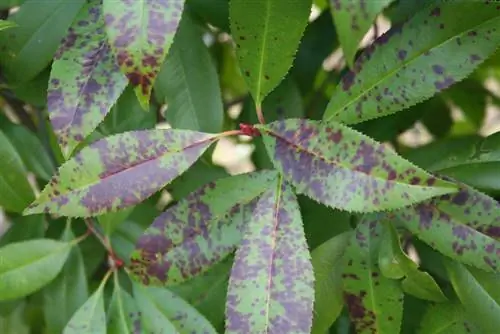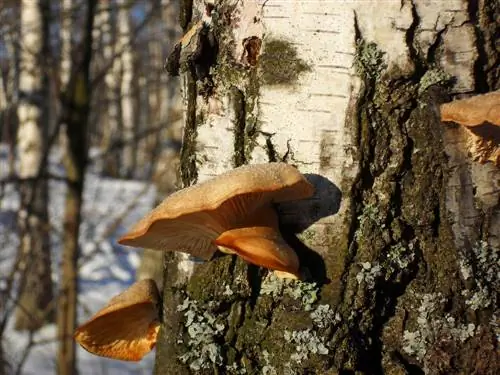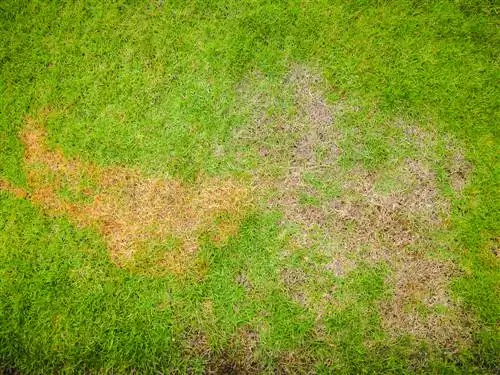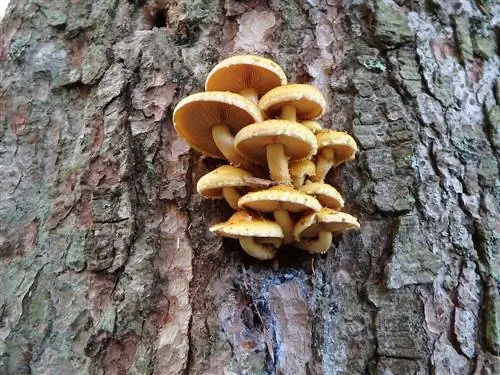- Author admin leonars@hobbygardeners.com.
- Public 2023-12-16 16:46.
- Last modified 2025-01-23 11:22.
Fungi are destructive and take on important tasks in the ecosystem. If a plant is infected by a species, this indicates weakened plant he alth. Suboptimal site conditions and incorrect maintenance measures are the causes of this imbalance.
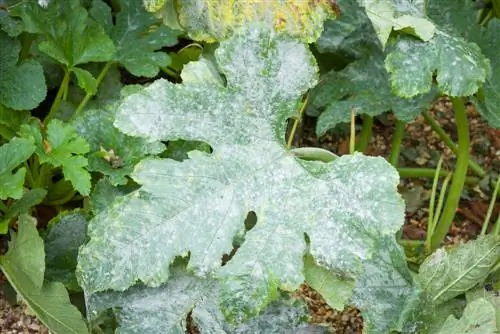
How do you fight fungal infections on plants?
Natural remedies for combating fungal infections on plants include rhubarb, fern and tansy manures or broths. Correct watering, plant-appropriate fertilization and a layer of mulch can also help prevent or limit fungal infestation.
Fungal infestation in the garden
Many species of fungi have not specialized in any host and are found on all plants. But there are also specific diseases of fruit trees, ornamental shrubs or herbaceous vegetable plants.
Common species:
- Powdery mildew: powdery lawn that spreads on the leaves when the weather is nice
- Downy mildew: whitish spots that cover the foliage in damp and cool weather
- Blight and brown rot: affects plants with a moist microclimate in the crop
- Gray mold: weakened plants have grayish mold patches and rotten spots
- Wilt fungi: penetrate roots and prevent water and nutrient supply
- Rustpile: cause yellowish to rusty brown spots on the underside of the leaves
- Leaf spot pathogens: cause red, white, yellow, brown or black discoloration
Plant cessation
You can find antifungal agents in nature, because certain plants develop plant substances that are effective against fungi. The active ingredients get into the extract through broths, teas and manures.
Rhubarb
The perennial is rich in oxalic acid, which not only eliminates fungi, but also repels harmful insects such as leek moths, black bean aphids, spider mites and caterpillars. 150 grams of leaves are boiled in a liter of water for 30 minutes. An aqueous decoction (ratio 1:5) is suitable for spraying.
Fern
Fernwort has effective substances against rust fungi and repels snails and aphids. One kilogram of fern ferments in ten liters of water for a few days. The manure is diluted 1:10 and sprayed or poured. To make stock, soak five kilograms of cabbage in a large pot of tap water for 24 hours. Then boil the broth for 30 minutes. This liquid is also suitable for spraying and watering when diluted 1:5.
tansy
This plant is rich in the toxic plant substance thujone, which not only counteracts fungal infestation. Beneficial insects are additionally harmed, so you should use the tea with caution. 30 grams of flowers and a liter of drinking water are enough. Let the liquid steep for half an hour and spray the affected parts of the plant.
The right care
Fungal spores survive in the soil and germinate when conditions are optimal. To worsen the survival basis, you should cover the substrate around the plants with mulching material or plant ground cover. This will prevent the spores from getting into the air again and infecting plant parts.
Mushrooms prefer predominantly humid conditions, so watering in the evening is not recommended. Watering in the morning allows the surface of the soil and leaves to dry out over the course of the day. Plant-appropriate fertilization is an important preventive measure because nutrients strengthen plant he alth and make the plants more robust.

